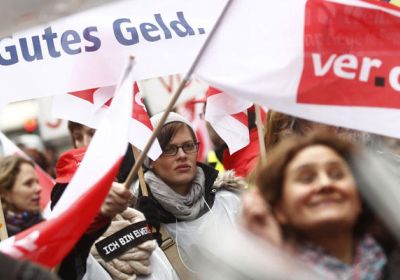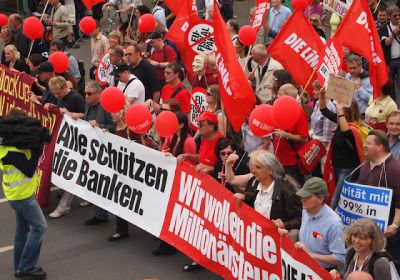
Germany’s September 22 federal elections delivered victory to the ruling conservative Christian Democratic Alliance, despite forces to their left winning a majority of seats.
Die Linke (the Left Party) has emerged the third largest in the Bundestag (German parliament).
The Chancellor Angela Merkel-led alliance scored their best result since German re-unification in 1990, with more than 18 million votes (41.5%).


